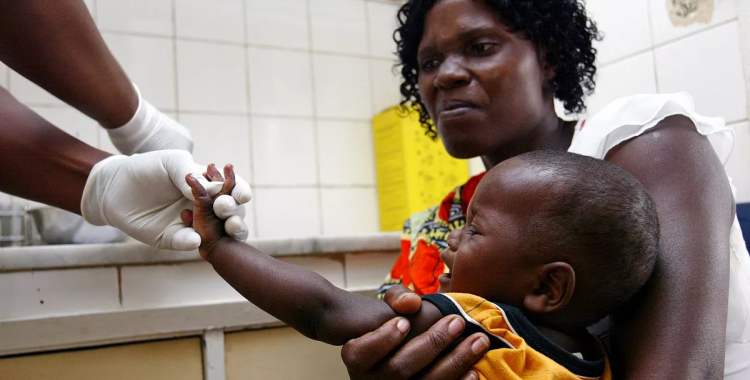Alfredo Francisco told Lusa that the country is in a phase of controlling malaria cases, with the number of deaths having reduced "quite a bit", above 25 percent, in the last five years, with work still to be done to reduce the high transmission rate. and improve prevention, above all.
In 2023, the organization registered 46,924 suspected cases in the provinces of Benguela and Cuanza Sul, regions where it has actions to combat malaria, and 46,315 cases were tested, of which 22,692 had positive results, benefiting 20,903 people from treatment.
World Vision has financial donations of close to ten million dollars made available, over the last three years, by the Global Fund and Exxon Mobil to combat malaria, for actions in Benguela and Cuanza Sul.
According to Alfredo Francisco, the continuous distribution of mosquito nets en masse is one of the organization's major strategies for controlling this endemic disease in Angola, which continues to be the main cause of death in the country and hospital admissions.
The official highlighted that World Vision, present in Angola for around 30 years and with several projects in 15 of the country's 18 provinces, distributed, in 2022, in Benguela and Cuanza Sul, regions where it focuses on children under five years of age, 2.8 million mosquito nets, covering approximately 80 percent of the population.
Alfredo Francisco said that, in July this year, the organization will begin preparing the launch of a new mosquito net distribution campaign in 2025, which will also cover the province of Bié, a region also "with a high transmissibility of malaria" and there is some time without this type of support.
In Benguela and Cuanza Sul, World Vision carries out vector control and identified the need to carry out studies to assess the resistance of mosquitoes to mosquito nets, research that is nearing completion.
"Often, even people using mosquito nets, the number of cases tends to increase, so there is a need to know which insecticide is needed, which best responds to that particular province, so that we can purchase these mosquito nets with this type of insecticide" , he explained.
There is still a lack of use of mosquito nets by the population, "but on a much smaller scale" than in the past, said the person responsible, hoping that, with the Angolan population census carried out in July this year, the rate of use of this product will be analyzed. .
"Mosquito nets save lives, it's true, in some locations we still have these situations where people use them for fishing, people say they don't use mosquito nets because it's too hot and different reasons, but we need to have a study to determine what the coverage is. of people who are using it and those who are not using it", he added.
For pregnant women, the organization has actions in three municipalities in Luanda, with funding from Exxon Mobil, with a view to increasing the consumption rate of Fansidar, the intermittent preventive treatment for this vulnerable group, after children.
"There is every effort we are making to ensure that these pregnant women have at least the minimum number of doses of Fansidar that is recommended by the national protocol, which is three or more doses", he highlighted.
According to Alfredo Francisco, from June to December last year, more than 1200 pregnant women were assisted, however, deaths are still recorded due to late arrival at hospitals, non-compliance with protocols made by hospitals, myths about childbirth and pre-natal consultation. Christmas.
The director of World Vision's health program highlighted that the problem of malaria in Angola "must and needs to have combined and well-planned actions", between different sectors and actors, for a "more effective response to malaria", defending prevention as priority bet.







